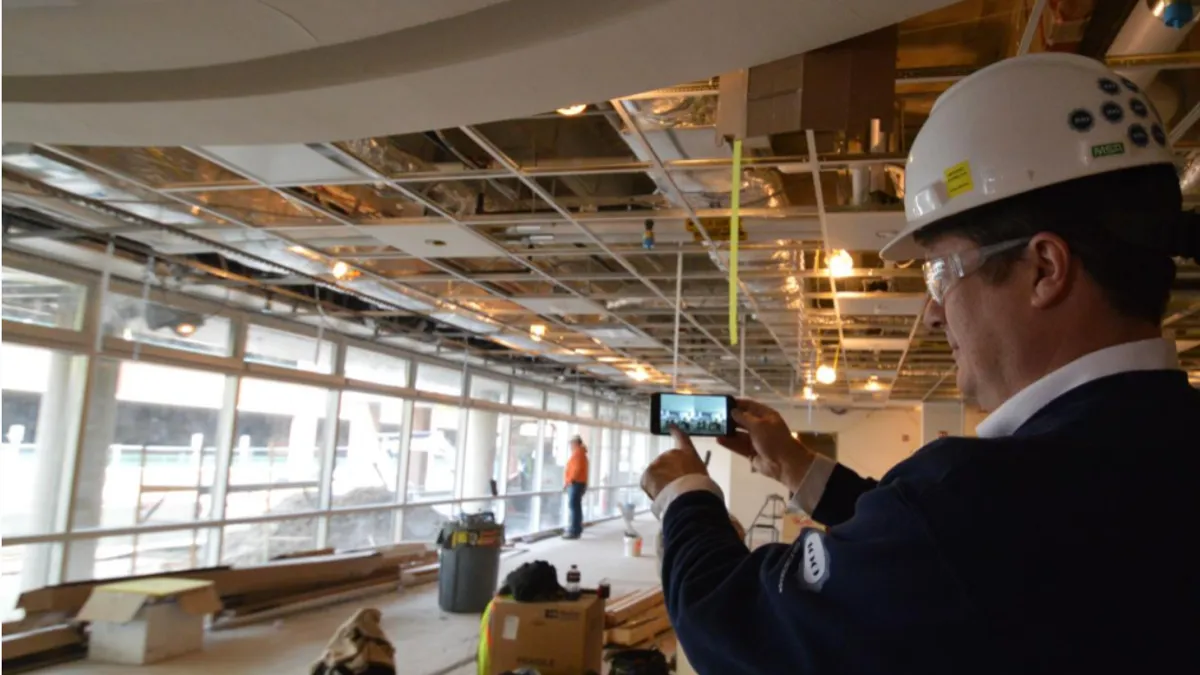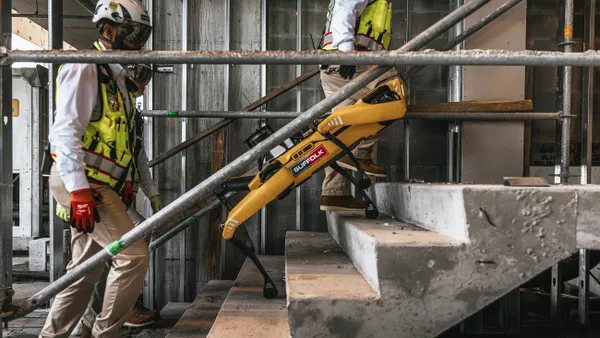Dive Brief:
-
Investors are eager to sink money into construction technology, which could finally push the industry into investing time and other resources into automation, according to The Wall Street Journal.
-
Quoting from a recent report from research company CREtech, The Journal reported that venture capital investment in private contech firms increased from $352 million in 2016 to more than $6 billion in 2018. As of the end of June, investments totaled more than $4 billion, indicating that capital injections into contech in 2019 could surpass those made in 2018.
-
If the industry can hold steady long enough for startups to deliver on their promises of new efficiencies, not only will the resulting new technology help tackle rising construction costs and the persistent shortage of qualified trade workers, but it will likely also provide a big payoff for those willing to invest in an industry that experts say is ready for automation.
Dive Insight:
Of course, a high return is the primary goal of investors, and construction technology companies have netted some investors a huge take. The Journal reported, for instance, that investment firm Bee Partners, headed by Michael Berolzheimer, made seven times its original investment on its $275 million sale of BuildingConnected to industry software giant Autodesk last year.
With the labor shortage showing no signs of easing, startups that address that pain point, as well as that of rising construction costs, are popular with investors as well. In fact, switching to modular design and construction — a favorite investor technology — reduced the anticipated construction workforce at the $10 billion ExxonMobil-SABIC ethane steam cracker and plastics plant in Corpus Christi, Texas, from 11,000 to 6,000 people. A recent report from McKinsey & Associates found that using modular construction has the potential to deliver some construction projects up to 50% faster than traditional construction methods as well.
Katerra, for instance, a company that produces and installs building components for modular construction projects, has drawn $1 billion of investments.
Interest in the modular construction segment likely will grow as more major developers like Marriott International and Hilton adopt it for their projects. Last month, Hilton announced that its Home2 Suites by Hilton property near San Francisco, the first extended stay hotel the chain has built using modular and the first modular hotel for the Bay Area, opened just 16 months and less than a year after its modular components were delivered to the site.
In addition, Marriott, which has more than 30 modular-built properties up and running, announced that it would build the tallest modular hotel in the world — a $65 million AC Hotel — in New York City.












